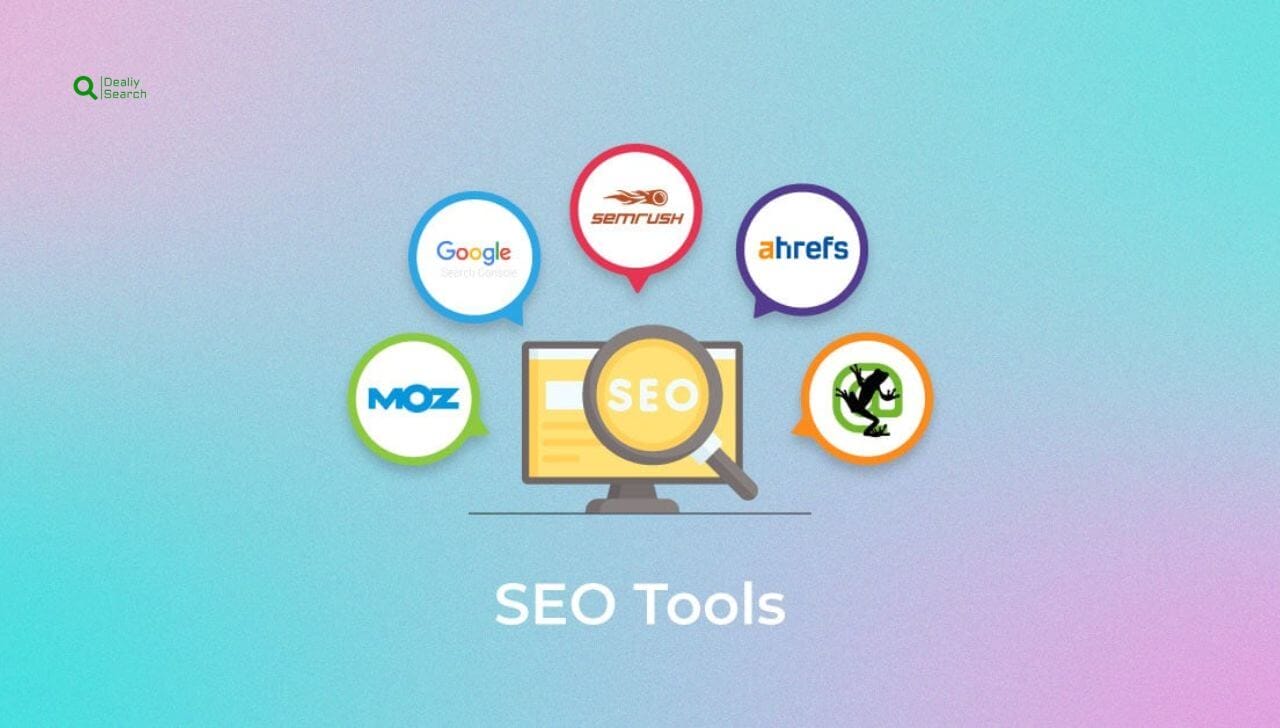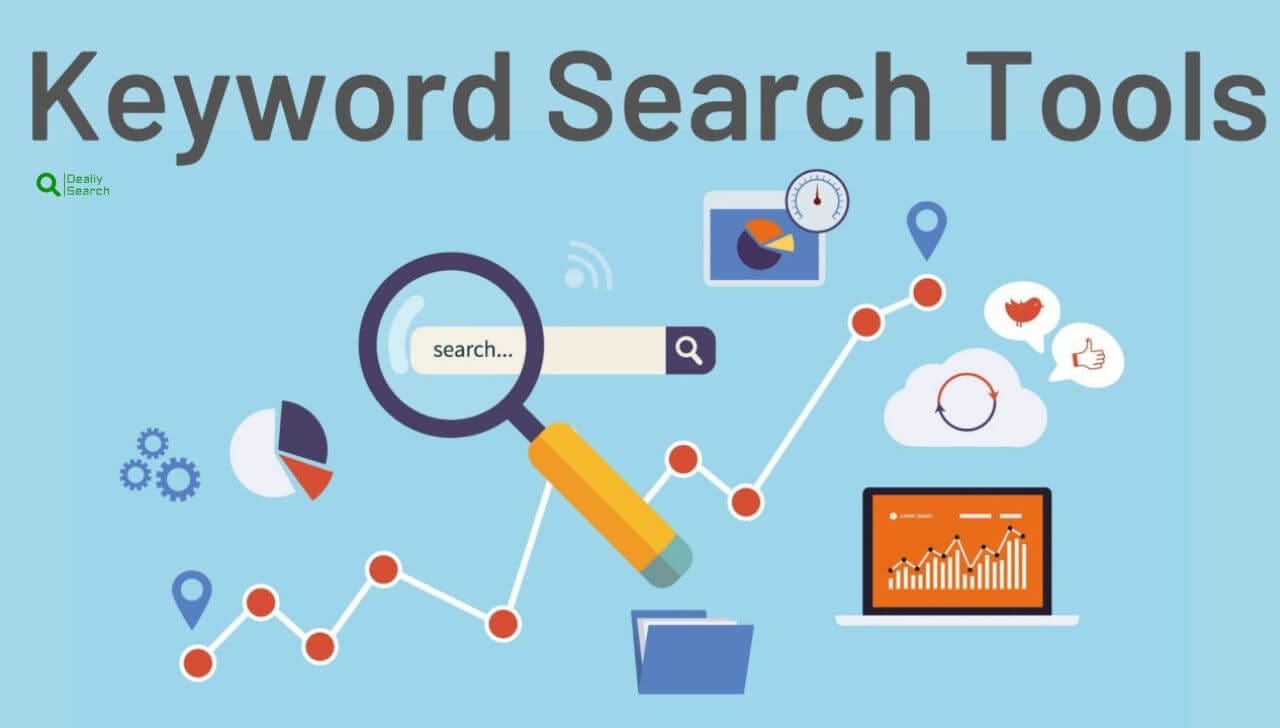Essential SEO Tools for Keyword Research and Website Optimization

In today’s digital world, search engine optimization (SEO) is essential for improving website visibility, driving organic traffic, and staying ahead of the competition. SEO tools help website owners, marketers, and businesses optimize their content, analyze competitors, track rankings, and improve overall search performance. Whether you’re looking for keyword research, backlink analysis, technical SEO audits, or content optimization, the right tools can save time and provide valuable insights.
From industry leaders like Ahrefs, SEMrush, and Moz to free tools like Google Search Console and Ubersuggest, these platforms offer a wide range of features to enhance your SEO strategy. In this guide, we’ll explore the best SEO tools and how they can help you boost your website’s ranking.
What Are SEO Tools?
SEO tools are software or online platforms designed to help website owners, digital marketers, and businesses optimize their websites for search engines like Google, Bing, and Yahoo. These tools provide valuable insights into various aspects of SEO, such as keyword research, website analysis, backlink monitoring, technical SEO audits, and competitor research.
By using SEO tools, businesses can improve their website’s ranking, increase organic traffic, and enhance online visibility. Some popular tools include Google Search Console, Ahrefs, SEMrush, Moz, Ubersuggest, and Screaming Frog. Whether free or paid, these tools help identify SEO opportunities, fix website issues, and track progress over time.

Why is Important
SEO tools play a crucial role in helping businesses, marketers, and website owners optimize their websites for better search engine rankings. They provide valuable insights into keyword research, competitor analysis, backlink tracking, and technical SEO audits, making it easier to improve online visibility. Without tools, optimizing a website would be time-consuming and less effective.
One of the main reasons tools are important is that they help improve search engine rankings. By analyzing keywords and optimizing content, websites can rank higher on Google, leading to increased organic traffic. These tools also save time by automating tasks such as site audits, rank tracking, and error detection, allowing businesses to focus on strategy rather than manual analysis.
SEO tools are also essential for identifying and fixing website issues. They detect broken links, slow page speeds, indexing errors, and other technical problems that can affect search rankings. Additionally, they offer competitor analysis features, helping businesses understand their competition’s strategies and find opportunities to improve their own SEO efforts.
Another significant benefit of tools is their ability to track performance. Platforms like Google Search Console, Ahrefs, and SEMrush provide detailed reports on keyword rankings, traffic sources, and backlink growth, helping businesses measure the effectiveness of their SEO strategies. By optimizing their websites based on this data, businesses can improve user experience, drive more organic traffic, and increase revenue.
In today’s competitive digital landscape, tools are essential for any website looking to grow its online presence. They simplify SEO processes, provide actionable insights, and help businesses stay ahead of their competitors. Whether you’re a beginner or an expert, investing in the right SEO tools can make a significant difference in your website’s success.
How to Choose the Right SEO Tools
Choosing the right SEO tools is essential for improving website rankings, optimizing content, and staying ahead of competitors. With so many options available, it’s important to consider your specific needs, budget, and level of expertise. If you are a beginner, free tools like Google Search Console and Ubersuggest provide essential keyword insights and website performance data. For advanced users, premium tools such as Ahrefs, SEMrush, and Moz offer comprehensive features like backlink analysis, competitor research, and technical SEO audits.
Additionally, businesses focusing on local SEO may benefit from tools like Bright Local or Google My Business. Before selecting a tool, evaluate factors like keyword accuracy, data reliability, user-friendliness, and integration with other marketing platforms. By choosing the right tool, you can streamline your SEO strategy, improve search rankings, and drive more organic traffic.
Types of SEO Tools
SEO tools are essential for optimizing websites, improving search engine rankings, and driving organic traffic. They can be categorized into different types based on their functionalities. Here are the main types of tools and how they help in digital marketing:
Keyword Research Tools
These tools help identify high-ranking keywords, search volume, competition, and user intent. They are crucial for content optimization and PPC campaigns.
Examples:
Google Keyword Planner: Free tool for finding keyword ideas and search trends.
Ahrefs Keywords Explorer: Provides keyword difficulty, search volume, and click-through rates.
SEMrush Keyword Magic Tool: Offers in-depth keyword research and competitive analysis.
Ubersuggest: Affordable tool for keyword suggestions and SEO insights.
On-Page SEO Tools
On-page tools focus on optimizing content, meta tags, headings, and overall page structure for better rankings.
Examples:
Yoast SEO: WordPress plugin for optimizing meta tags, readability, and SEO score.
Surfer SEO: AI-powered content optimization tool that helps improve keyword density.
Rank Math: Advanced SEO plugin for WordPress with automated suggestions.
Technical SEO Tools
Technical SEO tools help identify website errors, speed issues, indexing problems, and overall website health.
Examples:
Google Search Console: Tracks indexing status, search performance, and technical errors.
Screaming Frog SEO Spider: Audits website structure, broken links, and duplicate content.
Sitebulb: Provides in-depth technical SEO audits with visual reports.
GTmetrix: Analyzes page speed and performance optimization.
Backlink Analysis Tools
These tools help monitor backlinks, analyze competitors’ link-building strategies, and track domain authority.
Examples:
Ahrefs Site Explorer: Offers comprehensive backlink analysis and domain authority tracking.
Moz Link Explorer: Provides insights into link profiles and spam scores.
SEMrush Backlink Analytics: Tracks new and lost backlinks, anchor texts, and referring domains.
Competitor Analysis Tools
Competitor analysis tools provide insights into competitors’ keywords, backlinks, content strategies, and traffic sources.
Examples:
SEMrush Competitive Research: Helps analyze competitors’ organic and paid strategies.
Ahrefs Site Explorer: Provides traffic insights and backlink analysis of competitors.
SpyFu: Shows competitors’ Google Ads and organic keyword performance.
Rank Tracking Tools
These tools track keyword rankings, monitor SERP changes, and provide performance reports.
Examples:
Google Search Console: Tracks search rankings and impressions.
SEMrush Position Tracking: Monitors keyword rankings across different locations.
Ahrefs Rank Tracker: Provides real-time ranking updates and historical performance data.
Local SEO Tools
Local tools focus on improving search visibility for businesses targeting specific locations.
Examples:
Google My Business: Essential for managing local business listings and reviews.
Bright Local: Provides local citation tracking and SEO audits.
Whit spark: Helps build local citations and improve local search rankings.
SEO Reporting & Analytics Tools
These tools help track SEO performance, generate reports, and measure ROI.
Examples:
Google Analytics: Tracks website traffic, user behavior, and conversions.
Google Data Studio: Creates custom SEO reports with real-time data.
SEMrush SEO Dashboard: Provides automated reports on keyword rankings and backlinks.
Benefits of SEO Tools
SEO (Search Engine Optimization) tools provide a variety of benefits that can help businesses, website owners, and digital marketers improve their online presence. Here are some key advantages:
- Improved Search Engine Rankings: SEO tools help identify keywords with high search volume and low competition, enabling websites to optimize their content and rank higher on Google and other search engines.
- Better Website Traffic: By optimizing content, meta tags, and backlinks, tools drive more organic traffic to your website, reducing reliance on paid ads.
- Competitor Analysis: Tools like Ahrefs, SEMrush, and Moz allow businesses to analyze competitors’ keywords, backlinks, and content strategies, helping them stay ahead in the market.
- Time and Cost Efficiency: Instead of manually analyzing SEO performance, these tools automate keyword research, technical audits, and backlink tracking, saving time and effort.
- Keyword Optimization: Tools suggest high-ranking keywords and phrases that can improve content visibility and engagement.
- Technical SEO Improvements: SEO tools identify website issues like broken links, slow loading speed, and mobile-friendliness, improving overall website health.
- Backlink Analysis & Management: They help track inbound and outbound links, find high-quality backlink opportunities, and remove toxic links that may harm rankings.
- Content Optimization: Many tools provide readability scores, plagiarism checks, and keyword density recommendations to ensure better-quality content.
- Local SEO Benefits: Businesses targeting local customers can use SEO tools to optimize for “near me” searches, Google My Business (GMB) listings, and local keywords.
- Data-Driven Decision Making: Tools provide in-depth analytics and reports, helping businesses measure performance and make strategic marketing decisions.
Since your business deals with premium subscriptions, using tools can help attract more organic traffic to your website and improve your online visibility. Let me know if you need recommendations on the best tools for your business!

Frequently Asked Question
Here are some frequently asked question about this topic:
What are SEO tools, and why are they important?
SEO tools help website owners and digital marketers optimize their websites for search engines like Google. They provide insights on keyword rankings, backlinks, technical SEO issues, competitor analysis, and more. Using tools can improve website visibility, organic traffic, and search engine rankings.
What are SEO tools, and why are they important?
SEO tools help website owners and digital marketers optimize their websites for search engines like Google. They provide insights on keyword rankings, backlinks, technical SEO issues, competitor analysis, and more. Using tools can improve website visibility, organic traffic, and search engine rankings.
What are the best SEO tools available?
Some of the best SEO tools include:
Ahrefs: Backlink analysis, keyword research, and competitor insights
SEMrush: All-in-one SEO, PPC, and content marketing tool
Moz Pro: Site audits, keyword tracking, and link building
Google Search Console: Free tool for website performance monitoring
Yoast SEO: Popular WordPress plugin for on-page optimization
Are free SEO tools effective?
Yes, free SEO tools can be very effective for beginners and small businesses. Google tools like Search Console and Google Analytics provide essential SEO data for free. Other free tools like Ubersuggest, Moz’s free domain analysis, and Ahrefs’ free backlink checker can also be useful for basic SEO tasks.
How do SEO tools help with keyword research?
SEO tools help identify high-ranking and low-competition keywords by analyzing search volume, keyword difficulty, and trends. Tools like Ahrefs, SEMrush, and Google Keyword Planner provide keyword suggestions based on competitors, search intent, and user behavior.
Can SEO tools guarantee top rankings on Google?
No SEO tool can guarantee top rankings because search engine algorithms consider many factors, including content quality, backlinks, user experience, and competition. SEO tools provide valuable insights and recommendations, but consistent optimization and high-quality content are crucial for long-term ranking success.
Conclusion
SEO tools are essential for businesses, marketers, and website owners looking to improve search rankings and drive organic traffic. They help with keyword research, competitor analysis, technical audits, backlink tracking, and performance monitoring, making SEO strategies more effective and efficient. By using the right tools, businesses can optimize their websites, enhance content, and stay ahead in the competitive digital landscape.
Free options like Google Search Console provide valuable insights, while premium tools like Ahrefs and SEMrush offer advanced analytics. Whether you’re a beginner or an expert, leveraging these tools ensures long-term growth and better search visibility. Investing in the right solutions can significantly boost website performance and help achieve higher rankings in search results.
.






